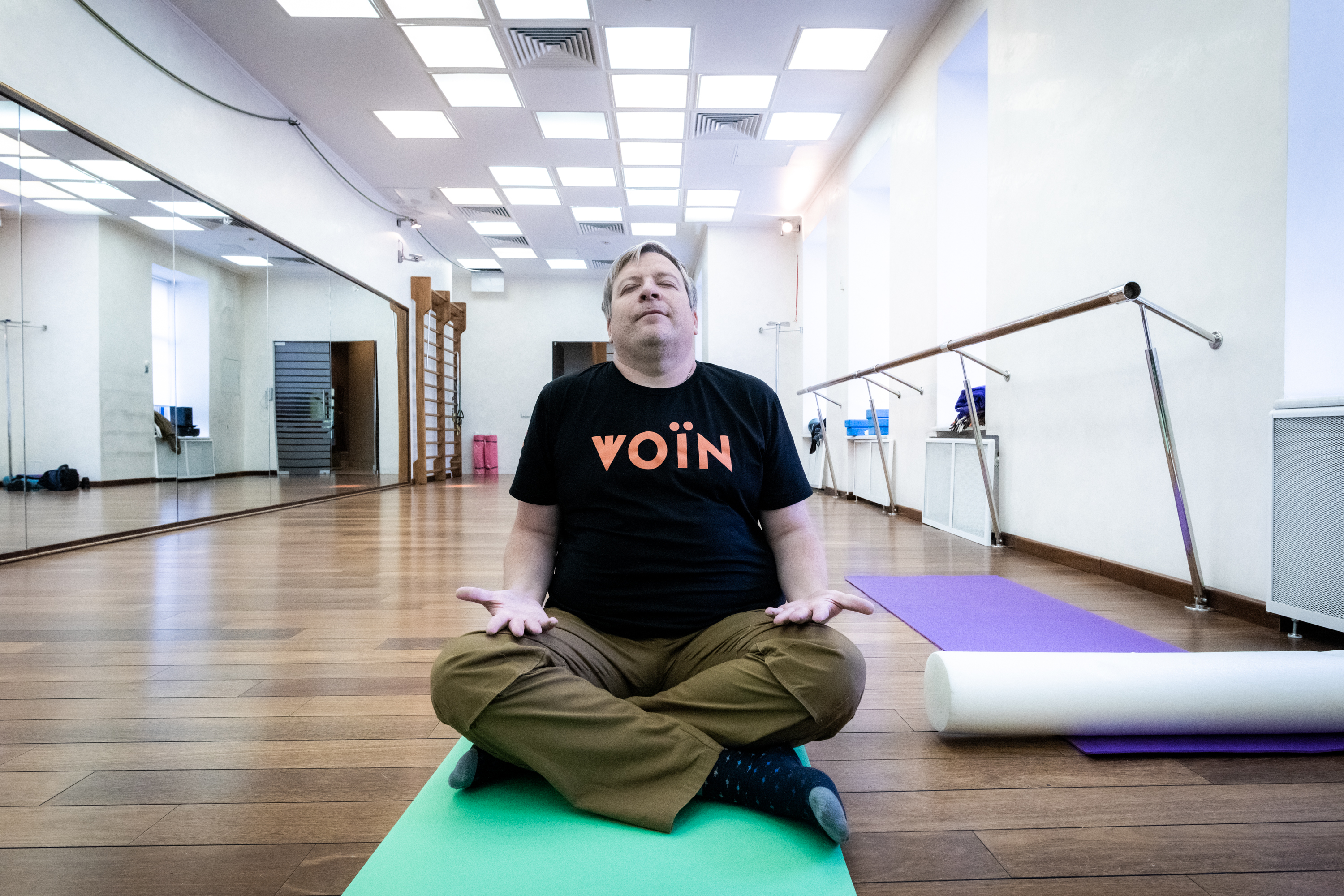Roberto Travan, professional journalist and independent photographer from Italy, specializes in war and social reportage. He travels to Donbas since 2015 to report about war with pro-Russian militants. Yet, the Donbas war that is still ongoing with no smaller rigor leaves its sign not only on the frontline, Roberto writes... We publish an English-language translation of his article in La Stampa.

 The Ukrainian war has Denys' glassy, worn eyes; he’s about twenty years old, has a thick beard and fever cracked lips. A month now, he is trying to find some peace in Pushcha Vodytsia, a shelter erected in the middle of an immense forest of pines and birches.
The Ukrainian war has Denys' glassy, worn eyes; he’s about twenty years old, has a thick beard and fever cracked lips. A month now, he is trying to find some peace in Pushcha Vodytsia, a shelter erected in the middle of an immense forest of pines and birches. Wrapped in faded sheets, Denys searches the crumpled velvet chair for medicines to ward off the nightmares that are haunting him since long: the hiss of tracers, the roar of mortars, the cold, the fear. But above all the vivid faces of the companions he lost last winter in Mariupol, on the south front, at the redoubt of Shyrokyne. Denys made it, he is back, his body is weak but without trace of scars or mutilations; but he is wounded as well, his psyche and his soul hit with deep, excruciating injuries: "Post-traumatic stress disorder", whispers the doctor, is the plague that is destroying the lives of thousands of veterans, the Donbas lost generation.
The Ukrainian conflict is in the pale faces of the young cadets who swear the oath under the severe gaze of Vladimir the Great, the holy patron of the country. They parade under the statue, line up in front of it geometrically, in perfect silence. But they look lost and their wide uniforms and large hats make them even smaller than they are.
Wrapped in faded sheets, Denys searches the crumpled velvet chair for medicines to ward off the nightmares that are haunting him since long: the hiss of tracers, the roar of mortars, the cold, the fear. But above all the vivid faces of the companions he lost last winter in Mariupol, on the south front, at the redoubt of Shyrokyne. Denys made it, he is back, his body is weak but without trace of scars or mutilations; but he is wounded as well, his psyche and his soul hit with deep, excruciating injuries: "Post-traumatic stress disorder", whispers the doctor, is the plague that is destroying the lives of thousands of veterans, the Donbas lost generation.
The Ukrainian conflict is in the pale faces of the young cadets who swear the oath under the severe gaze of Vladimir the Great, the holy patron of the country. They parade under the statue, line up in front of it geometrically, in perfect silence. But they look lost and their wide uniforms and large hats make them even smaller than they are.
 They swear, then receive the red insignia and older comrades secure it on their abundant ordinance coats. Finally, they march to the monument that once was called the Arch of Friendship, a gigantic Soviet heritage conceived to celebrate the brotherhood with Russia. Water under the bridge, the same water that flow placidly in the Dnipro river, and then widen in a thousand rivulets to the east, towards the endless plains of the Donbas now occupied by the Russians.
The tragedy of the Donbas is all in the dull smiles of the widows and the orphans that every day crowd the Yarmiz recovery center. In a anonymous building just a short walk from the center of Kyiv, Nataly Prilutska and her volunteers organize activities to help their guests to recover. Among them there is the little Zakhar with his mother Alena. Alexey, his father, died in 2015 in the Battle of Debaltseve: for months his family waited for his return, hoping he had been imprisoned by the Russians. Then the tragic news arrived with a medal of valor, shining, sad tribute to his memory. Here Zakhar and Alena are searching some relief. And here they find above all the energies of Nataly and of the dozens of young people who, with few means at their disposal, face the tragedy of the survivors, uncertain, embarrassing legacy of any conflict.
They swear, then receive the red insignia and older comrades secure it on their abundant ordinance coats. Finally, they march to the monument that once was called the Arch of Friendship, a gigantic Soviet heritage conceived to celebrate the brotherhood with Russia. Water under the bridge, the same water that flow placidly in the Dnipro river, and then widen in a thousand rivulets to the east, towards the endless plains of the Donbas now occupied by the Russians.
The tragedy of the Donbas is all in the dull smiles of the widows and the orphans that every day crowd the Yarmiz recovery center. In a anonymous building just a short walk from the center of Kyiv, Nataly Prilutska and her volunteers organize activities to help their guests to recover. Among them there is the little Zakhar with his mother Alena. Alexey, his father, died in 2015 in the Battle of Debaltseve: for months his family waited for his return, hoping he had been imprisoned by the Russians. Then the tragic news arrived with a medal of valor, shining, sad tribute to his memory. Here Zakhar and Alena are searching some relief. And here they find above all the energies of Nataly and of the dozens of young people who, with few means at their disposal, face the tragedy of the survivors, uncertain, embarrassing legacy of any conflict.








